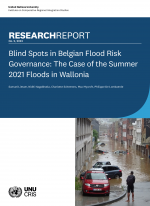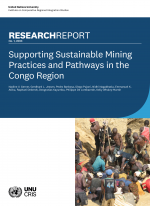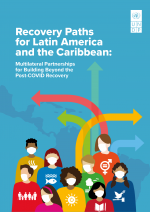Measuring Intra-Regional Labour Mobility and Migration
One way to assess and monitor the deepening of regional economic integration processes is by looking at the degrees of de facto regional interdependence. Relatively high and/or increasing degrees of the latter can then either be interpreted as pre-conditions for the further institutionalization of the regional integration project, or as (partial) results of regional integration policies. While the relation between de facto interdependence and institutionalization at the regional level is thus to be seen in terms of testable hypotheses, it is clear that both are relevant aspects when studying regions comparatively. Regional economic interdependence can in turn be broken down in different aspects. And although different types of flows between the interconnected parts (countries) within an integration scheme are not the only intervening variables (business cycle correlations or price correlations e.g. are also relevant variables), they are of course essential. In a Balassa world, we would immediately think of trade in goods (and services), capital movements and labour mobility (migration), but flows of knowledge, communication and other human interaction could also be added.




